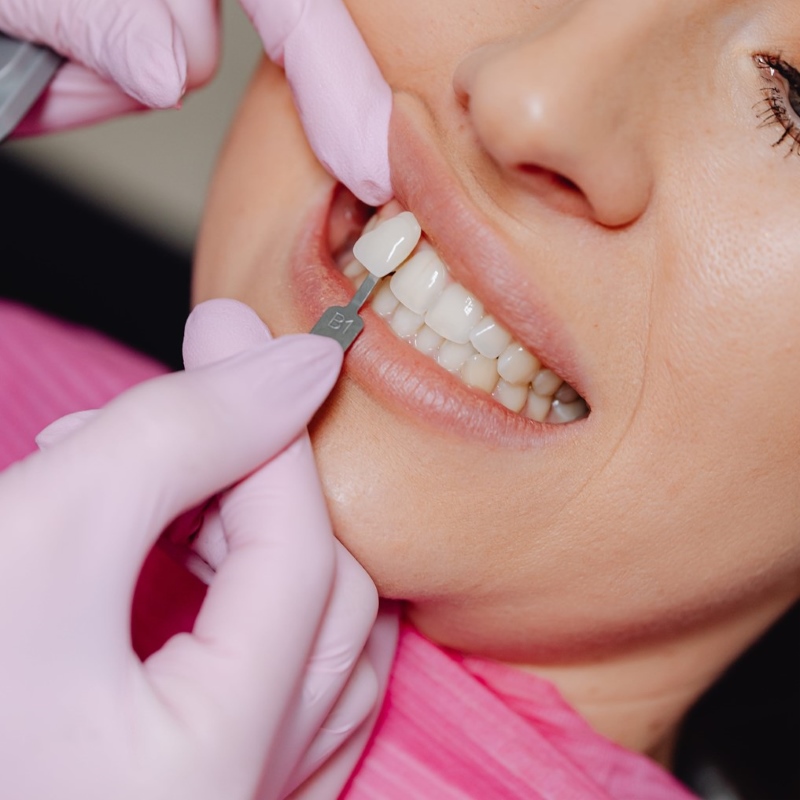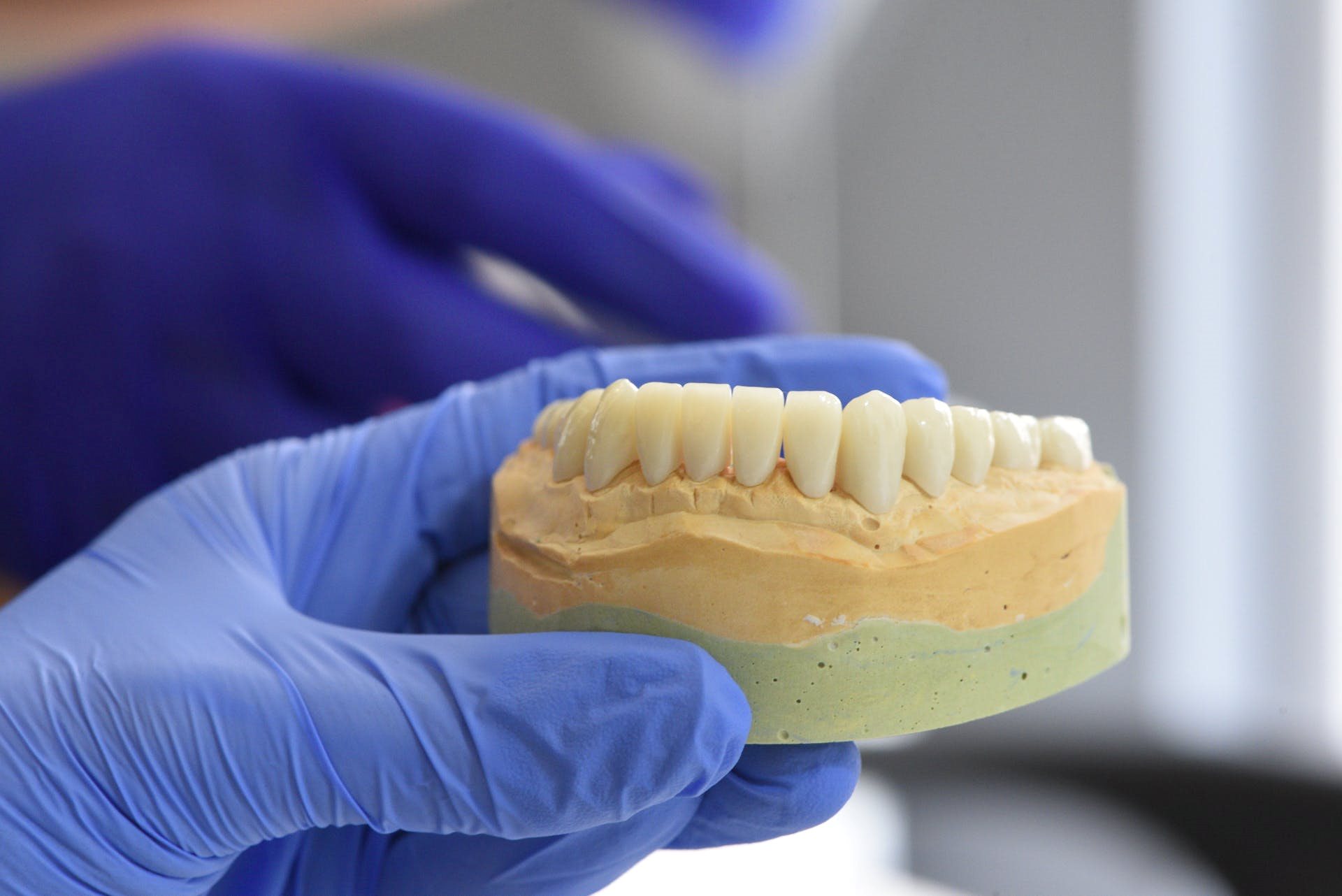Dec
12

Discovering a loose tooth as an adult can be an unsettling experience; unlike children – for whom loose teeth are a normal part of development – tooth loss as an adult can mean serious oral health issues – and there’s no tooth fairy coming to leave us a quid or two under the pillow! That being said, tooth loss due to oral health issues is usually progressive, which means that there are a number of preventative steps you can take before getting to the point of full tooth loss. But what are they, and what are the stages of tooth loss in adulthood? Let’s take a look.
Causes of Adult Tooth Loosening
Adult tooth loosening can stem from various causes, the most common of which is periodontal (gum) disease, where untreated plaque and tartar buildup lead to the deterioration of the gums and supporting bone structure, resulting in loose teeth. Other factors contributing to this condition include traumatic dental injuries, osteoporosis (which can lead to bone loss in the jaw), and bruxism (teeth grinding), which places excessive pressure on the teeth and supporting structures.
Early Signs of Tooth Mobility
Tooth mobility often begins without noticeable symptoms, which can make early detection challenging. Generally, the first sign is usually a slight movement of the tooth, either detected during a dental examination or felt by the patient when biting, touching, or even cleaning the tooth. Other early indicators include changes in gum health, such as redness, swelling, or bleeding, which are common signs of gum disease and can lead to loosening of the teeth if left untreated.
Stage 1: Initial Mobility
The initial stage of tooth mobility can be characterised by minimal movement; this slight mobility might be noticed during routine dental check-ups or when the individual feels a subtle shift with their tongue or finger, but at this early stage, the condition is often reversible with appropriate dental care, including professional cleaning and improved oral hygiene practices.
Stage 2: Moderate Mobility
In the second stage, a loosening tooth will tend to exhibit more noticeable and concerning movement; for example, this can manifest via an increase in discomfort, especially when applying pressure or chewing. Moderate mobility is usually a sign of advancing periodontal disease or continuous stress on the tooth, which means urgent dental intervention is likely required to prevent further damage and potential tooth loss.
Stage 3: Advanced Mobility

At stage 3, this is the most critical stage of tooth mobility, where the tooth exhibits significant movement and also becomes a high risk for full tooth loss. Usually, you’ll be able to identify mobility easily, and it’ll often be accompanied by pain or severe discomfort when biting, chewing, or even talking (if it’s severe). At this advanced stage, advanced mobility also signifies potential extensive damage to the periodontal ligaments and supporting bone, usually due to advanced gum disease or severe traumatic injury. At this stage, an immediate and urgent dentist appointment is key to both salvage the loose tooth and maintain your overall dental health.
Managing Traumatic Injuries
It’s also important to note that not all loose teeth are caused by gum disease; teeth may also become loose due to traumatic injuries, such as accidents, contact trauma or sports injuries, especially in sports like rugby or hockey. In the case of a tooth loosening due to an injury, immediate dental care is essential to safeguard the tooth, so always make an emergency dental appointment as soon as you notice the tooth wobbling. Depending on the severity of the looseness, treatments may range from stabilisation techniques to more complex procedures aimed at preserving the tooth and preventing further oral health issues.
Also Read: The Connection Between Toothache and Earache
Seeking Professional Dental Advice
Regardless of the stage of mobility, professional dental advice is imperative if you’re dealing with a loose tooth: like many oral problems, early intervention can either halt or fully reverse the progression and save your tooth – but only if you act swiftly. At Smile Cliniq, our dental team offers a range of treatments, from non-invasive procedures to advanced surgical options, tailored to the specific condition and needs of every patient – so whether you’re looking for teeth whitening or to stabilise a loose tooth, our award-winning dentists have you covered.
FAQs
What should I do if I notice my tooth is slightly loose?
If you notice a slight looseness in your tooth, it’s important to schedule a dental appointment as soon as possible. Early detection and treatment can prevent further progression and may save the tooth.
Can a loose tooth tighten back up on its own?
In some cases, especially if addressed early, a loose tooth can tighten back up with appropriate dental treatment and improved oral hygiene. However, it largely depends on the underlying cause of the looseness.
Is it normal for teeth to be a little mobile?
A slight movement in teeth can be normal, but noticeable mobility, especially in adults, is usually a sign of an underlying issue and should be evaluated by a dentist.
When is a loose tooth an emergency?
A loose tooth is an emergency if it’s caused by trauma or if it’s accompanied by severe pain, swelling, or signs of infection. In such cases, seeking an emergency dentist appointment is highly recommended.
Read Next: Can Toothache Cause Headache?










